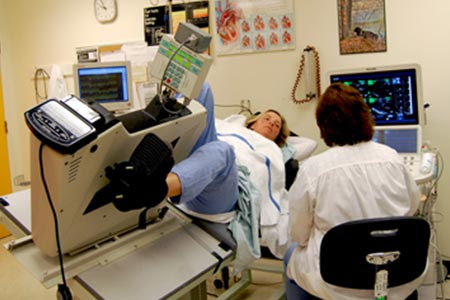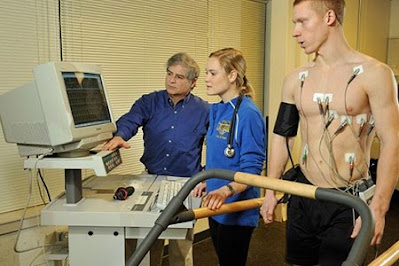Angioplasty is a
surgical procedure that involves the dilation and compression of blood vessels
in the body. If you are experiencing certain signs or symptoms that may
indicate a need for angioplasty, it is important to seek help from a medical
professional as soon as possible. Some common signs of angioplasty-related
issues include pain or discomfort, chest pressure or tightness, extreme
fatigue, nausea and vomiting, sudden weakness or dizziness, cold sweats, and changes
in vision.
If you are
experiencing any of these signs and symptoms, it is important to speak with
your doctor right away. Your doctor can help assess your condition and
determine if angioplasty may be necessary to effectively manage your condition
and clear everything like Angioplasty
Cost in Delhi. In many cases, angioplasty can be a highly effective
treatment option for improving blood flow and relieving symptoms associated
with various cardiovascular conditions.
1. Pain or Discomfort
One of the most
common signs that you may need angioplasty is pain or discomfort in the chest,
neck, jaw, shoulders, arms, or back. This pain may feel like squeezing,
pressure, fullness, or burning. It is important to note that this pain may not
always be constant and may come and go as your condition progresses. If you are
experiencing any type of pain or discomfort in these areas, it is important to
seek medical attention right away as it could be a sign of a serious underlying
condition.
2. Chest Pressure or Tightness
Another common sign
that you may need angioplasty is chest pressure or tightness. This pain may
feel like a heaviness, fullness, or crushing sensation in the chest. It is
important to note that this pain may not always be constant and may come and go
as your condition progresses. If you are experiencing any type of chest
pressure or tightness, it is important to seek medical attention right away as
it could be a sign of a serious underlying condition.
3. Extreme Fatigue
If you are experiencing
extreme fatigue on a regular basis, it could be a sign that your cardiovascular
system is not working properly. In particular, angioplasty can help improve
blood flow and reduce inflammation throughout the body, both of which can lead
to improved energy levels. If you are struggling with fatigue that is severe or
interferes with your daily activities, it is important to speak with your
doctor as soon as possible.
4. Nausea and Vomiting
Nausea and vomiting
are another common sign that you may need angioplasty. In some cases, nausea
and vomiting may be caused by the build-up of toxins in the body due to poor
blood circulation. Additionally, nausea and vomiting may also be a symptom of
an underlying condition such as heart disease or stroke. If you are
experiencing any type of nausea or vomiting, it is important to seek medical
attention right away as it could be a sign of a serious underlying condition.
5. Sudden Weakness or Dizziness
Sudden weakness or
dizziness is another common sign that you may need angioplasty. In some cases,
weakness and dizziness may be caused by the build-up of toxins in the body due
to poor blood circulation. Additionally, sudden weakness or dizziness may also
be a symptom of an underlying condition such as heart disease or stroke. If you
are experiencing any type of sudden weakness or dizziness, it is important to
seek medical attention right away as it could be a sign of a serious underlying
condition.
6. Cold Sweats
If you regularly
experience cold sweats, it could be a sign that your cardiovascular system is
not working properly. Cold sweats may occur due to the build-up of toxins in
the body due to poor blood circulation. Additionally, cold sweats may also be a
symptom of an underlying condition such as heart disease or stroke. If you are
experiencing any type of cold sweats, it is important to seek medical attention
right away as it could be a sign of a serious underlying condition.
7. Changes in Vision
Changes in vision can
be another sign that you may need angioplasty. In some cases, changes in vision
may be caused by the build-up of toxins in the body due to poor blood
circulation. Additionally, changes in vision may also be a symptom of an
underlying condition such as heart disease or stroke. If you are experiencing
any type of changes in vision, it is important to seek medical attention right
away as it could be a sign of a serious underlying condition.
8. Shortness of Breath
Shortness of breath
can be another sign that you may need angioplasty. In some cases, shortness of
breath may be caused by the build-up of toxins in the body due to poor blood
circulation. Additionally, shortness of breath may also be a symptom of an
underlying condition such as heart disease or stroke. If you are experiencing
any type of shortness of breath, it is important to seek medical attention
right away as it could be a sign of a serious underlying condition.
9. Abnormal Heart Rhythm
If you are
experiencing abnormal heartbeat rhythms on a regular basis, this may be an
indication that something is wrong with your cardiovascular system and that you
may need angioplasty. In some cases, abnormal heartbeat rhythms may be caused
by the build-up of toxins in the body due to poor blood circulation.
Additionally, abnormal heartbeat rhythms may also be a symptom of an underlying
condition such as heart disease or stroke. If you are experiencing any type of
abnormal heartbeat rhythms, it is important to seek medical attention right away
as it could be a sign of a serious underlying condition.
Final Thought
If you are
experiencing any of the signs mentioned above, it may be a good idea to talk to
your doctor about getting an angioplasty and take invoice of Angioplasty
Cost in Delhi . Angioplasty is a medical procedure that helps improve
blood circulation and treat various conditions such as heart disease or stroke.
As such, it can help address many of the symptoms that are associated with poor
blood circulation, including nausea, vomiting, shortness of breath, dizziness,
and changes in vision. To learn more about angioplasty and whether it may be
right for you, speak to your doctor today.




Comments
Post a Comment